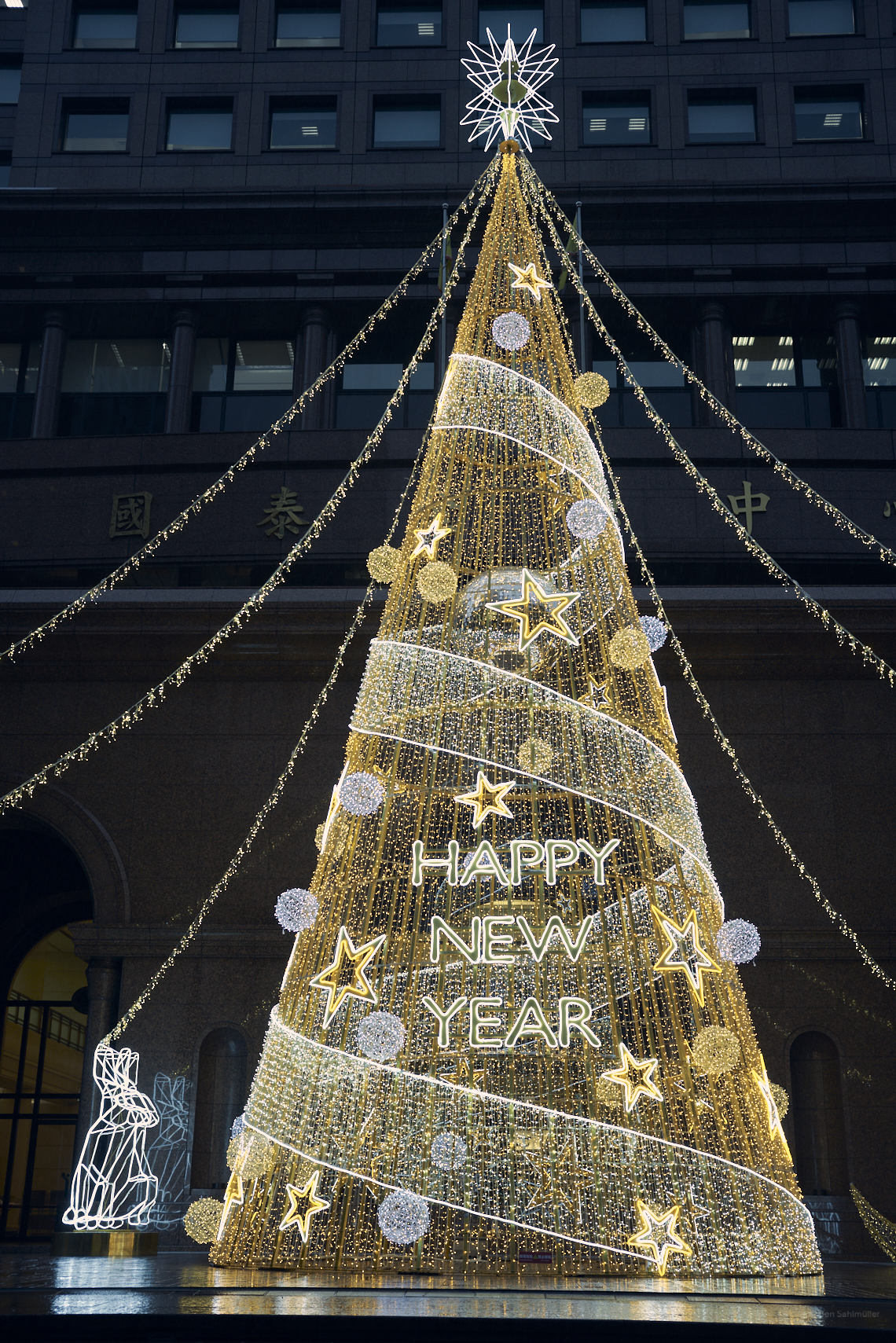Benerkenswert February 2023
Welcome to the February/March/First-Quarter issue of Benerkenswert! “Shorter and more regularly,” he promised last year. “Pustekuchen!” as we say in German. Anyway, this is still free, so just enjoy this edition. (And come back to it if you are missing the next one.)
In this issue
- Holidays and weekend vacations in Taiwan (“Life in Taiwan”)
- Thoughts on AI (linking here)
- Reflections on Germany (and personal growth) and Ukraine (and media)
- Recommendations of books (linking here), Lei Yang’s glorious TV series “Three Body”, two German video podcasts and lots of links giving more reasons to get lost in the world wide web
Life in Taiwan
(Links in this part link to articles on my blog unless states otherwise.)
Holiday Time in Taiwan
We have a weird season in Taiwan that just ended end of February, you could call it the “Season of the Three Holidays”. It had its impromptu somewhere in December with the preparations for Christmas, did a petite pirouette for New Year’s Eve, and found its grand finale at the end of January with Lunar New Year. There are festivities, holidays, and traditions at the heart of each of these three, and as always – it wouldn’t be the 21st century otherwise – all of them are massively propped up with weeks of special sales campaigns and commercial events, as well as – it wouldn’t be Taiwan otherwise – lots of good food and marketing weirdness!
Given its cultural Chinese heritage, Lunar New Year are Taiwan’s most important holidays. They combines the idea of starting a new year with the traditional weight, family gatherings, cooking, and eating of Christmas. Traditionally, Lunar New Year lasts 15 days. (Taiwanese work holidays only span the first week, and Taiwan has a weird policy of make-up work days where you work an extra day for the holidays you had. A cruel tradition which is met with ever bigger opinion pieces each year.)
In another tradition, Taiwanese celebrate the end of the two-week holidays with another two-week event, the colorful lantern festival. While it is historically a more local tradition of walking around with your own self-made lantern (a bit like St. Martin’s in Germany), there are now several big events all over the island. The most important one is the Taiwan Lantern Festival (™), organized by the Tourism Bureau in a different city each year – and this year hosted by Taipei. Living close to the center of it, we could enjoy decorated streets and public places far into February!
It was these public events and the accompanying sales campaigns that kept the holidays ever-present. Living in Xinyi, Taipei’s eastern pavonine commercial center, there was hardly a way to avoid the marketing extravaganza, probably the most carnal part of the season. I posted many photos of the whole shebang of Christmas, New Year’s, and Lunar New Year and the public craziness that is a triple holiday sale in this area on my photo blog.
On a personal level, the time was interesting, but confusing. Christmas and New Year’s lacked their festive gravitas and we missed our families, the usual rhythm of a coordinated, rushed slow-down at the end of December and reluctant but fresh new start into the New Year. (That being said, we had a very nice Christmas with fiends!) Work vacations too are different here, and while we took some days off around the European holidays, our main holidays were during LNY, which lead to a strange back and forth between holidays and work. I usually take the time “between the years” to get sorted, kill or redesign some projects that lost their sexiness throughout the last year, and meditate on my priorities. I thus mostly struggled with the free week in the middle of January, just after finding a nice momentum into the new year. And with so much of the island paused and traveling, we didn’t even plan much as it didn’t seem the right time for an adventurous trip. However…
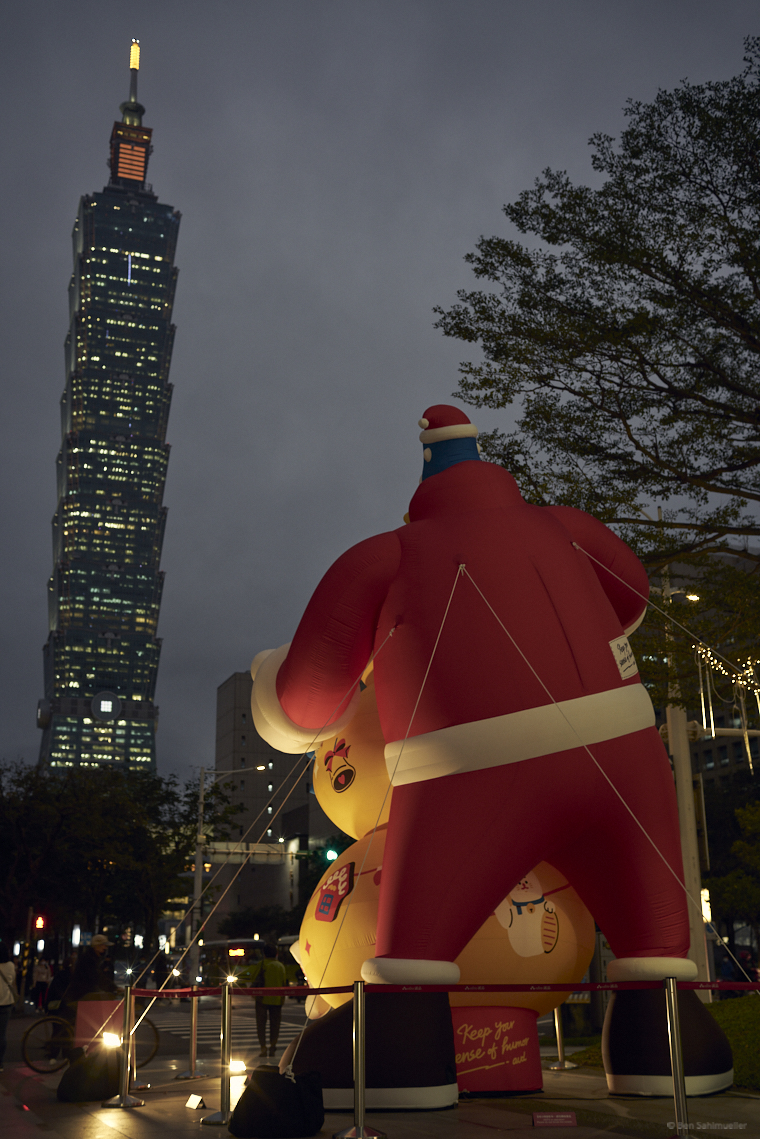
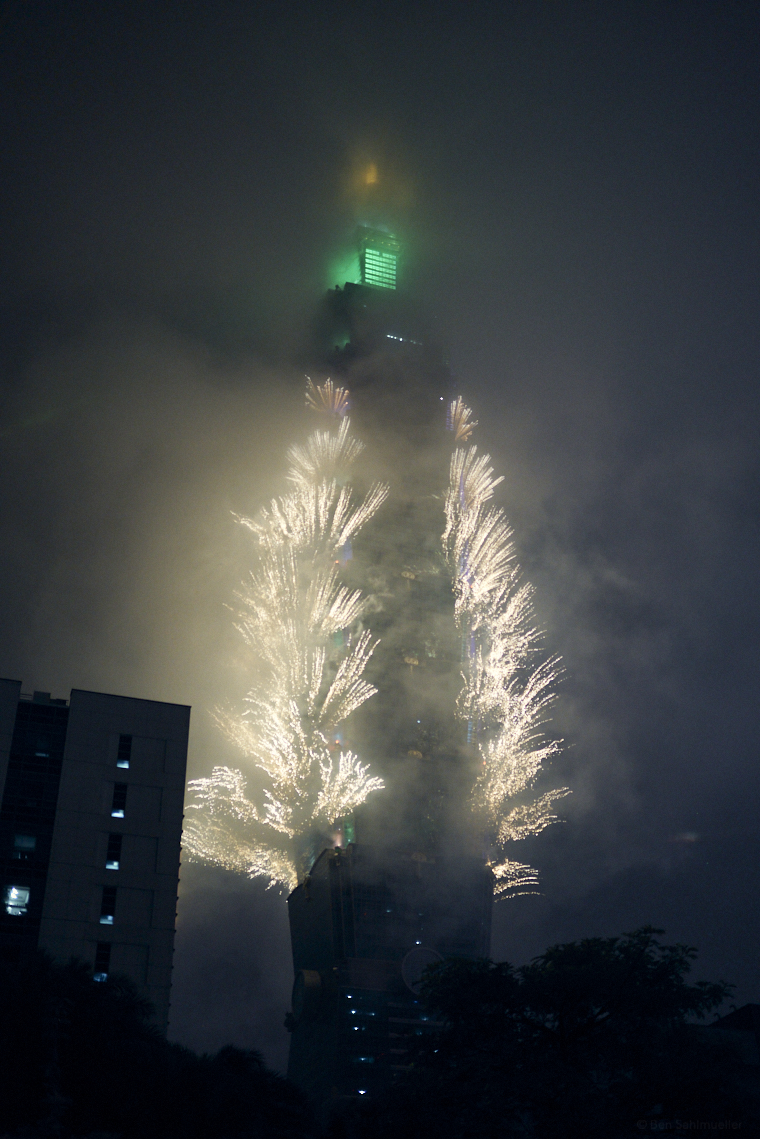
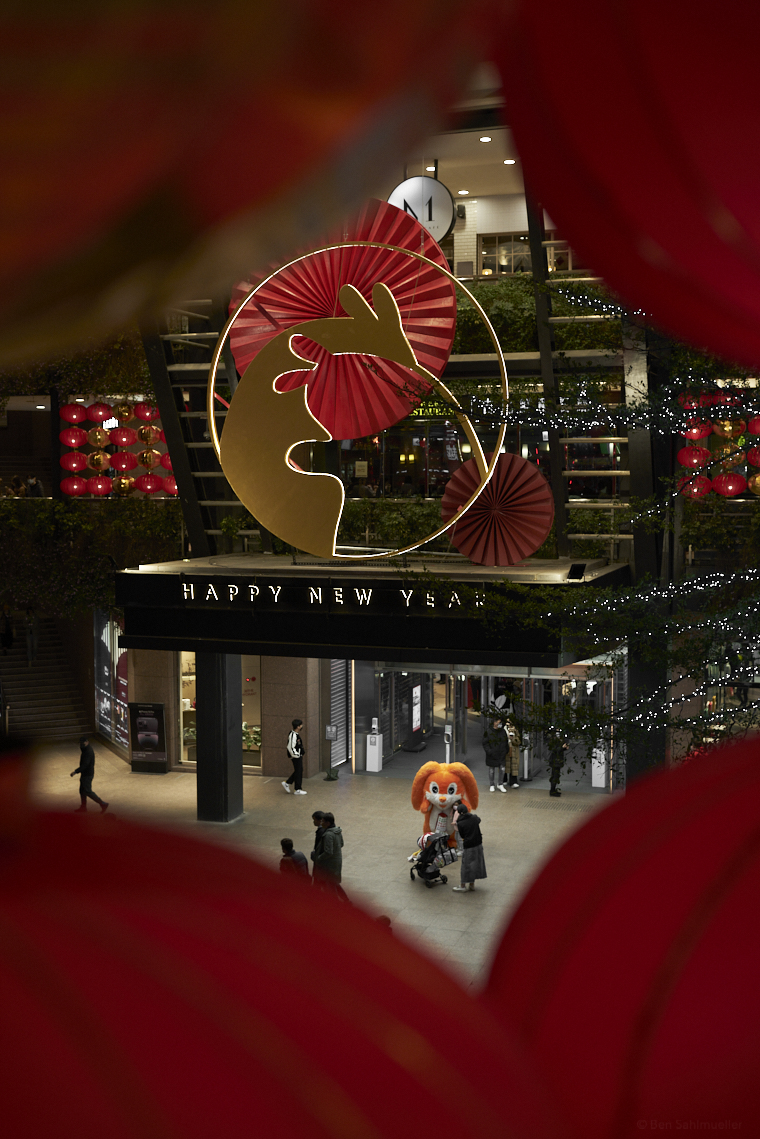



Family Time in Taiwan
Thankfully, the early-year confusion was expelled by a different distraction from daily routines: A three-week visit by Anna’s siblings, our first visitors since moving here in the middle of the Pandemic, marking the unmistakable end of the official year of goblin mode (Wikipedia).
It was an interesting and welcome experiment to leave the deeply honed habits of the last two years. I appreciated to experience this place through the eyes of someone for whom it is all new, the trees with their aerial roots, the springlike weather at the end of January, the foreign smells and tastes, the weird consumption habits, well-organized public transport, and meticulous service. But mostly, I and we were excited to have two generous, lovely people over!
We took two long weekends off to show some of our favorite places and to try a few new ones. I tried myself as a travel blogger a bit, so please head over to my photo blog for pictures of our trip to Alishan (阿里山) with its beautiful sunset at Zhushan (祝山), as well as the trip down south along Taiwan’s east coast towards Tarako gorge (太魯閣峽), with Changchun Shrine (長春祠) as another highlight.
We didn’t join the two for Jiufen (九份), but know the place from our visit almost two years ago. Also, there are still hundreds of pictures from our trip to Kaohsiung waiting to be screened – I might share them next time! And if you are interested in the logistical side of coming here and want to learn about the general cultural shifts you might expect, head over to this overview I wrote.
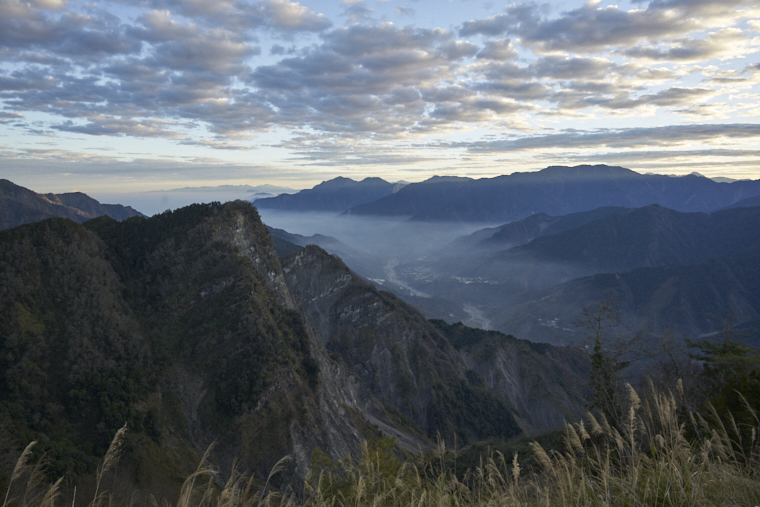
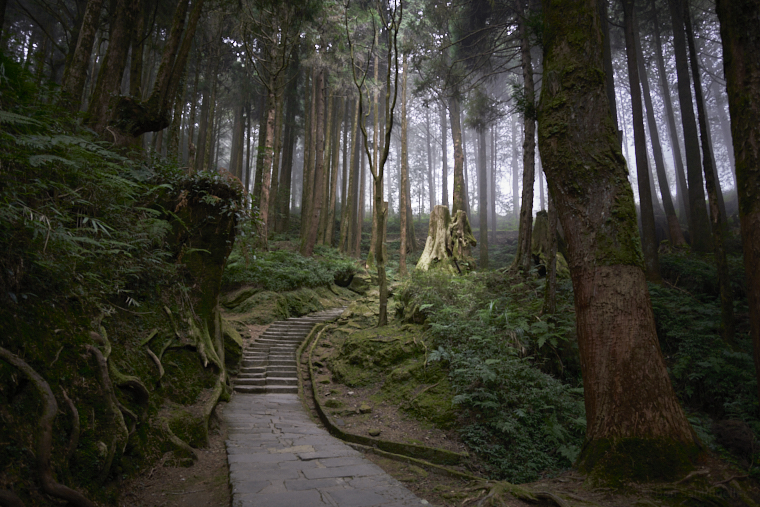

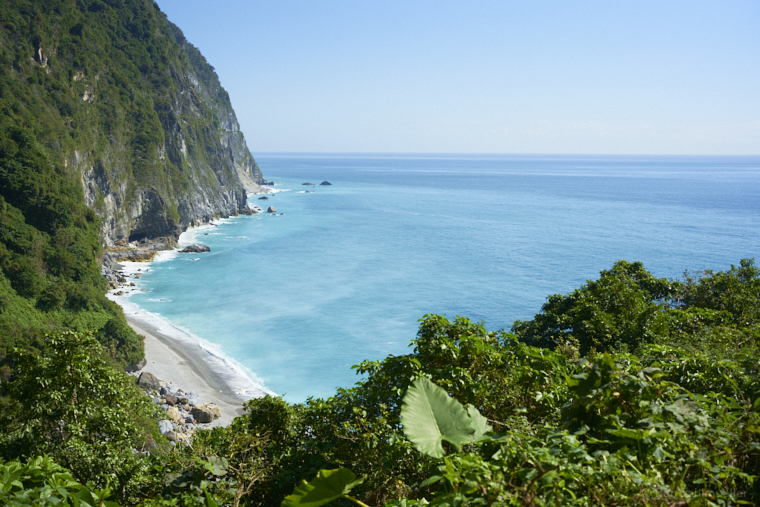
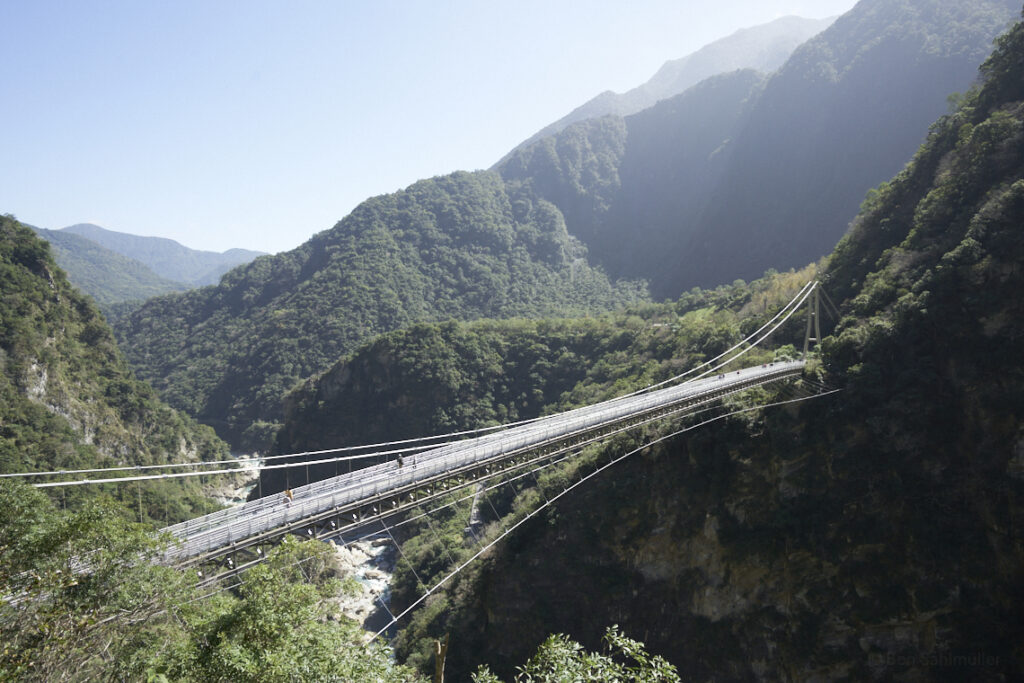

More visitors
The news beat on Taiwan has found a new normal after the visit of Pelosi half a year ago. The sudden inflow of new journalists from major news sources seems to have diminished a bit, albeit on a higher level than a year ago. (Definitely also thanks to Taiwan opening its boarders to the outside world.) While I can only assume that business travel too has risen, I am sure that more political delegations come to the island – as many of them visit Anna’s humming office. This prominently includes some party heavyweights of the liberal (rather than neoliberal) wing of Germany’s liberal party (FDP; Johannes Vogel, Konstantin Kuhle, and Marie-Agnes Strack-Zimmermann came among others, for those watching Anne Will). I quite enjoyed watching my wife making the rounds on various Instagram-reels and Twitter feeds and had a nice chat with some of the guests later at the hotel bar. (Politicians are professional small-talkers, of course, but they seemed genuinely smart and nice people with a good compass on issues related to Taiwan.)
Thoughts on AI
Nothing to lose
Disruption! you rage The jobs! you cry Your most sheltered, assiduous children soon but a puppet in a machine’s dream Evicted from their corner offices and court rooms they will race your 911 past ruins of robot-raided homes towards your palace at the lake And yet To build a wall to start a war will not stop your forgotten sons and daughters from summoning a soul for the soulless What else can they do but to burn your world in search for a second ticket after they lost the lottery of live
As so many, I am following the advances and turns in the AI-space with awe. As an interested amateur, I think I keep up with the big picture but of course struggle in the details.
There is a lot happening in the AI-world. Fun stuff, crazy stuff, scary stuff. The last weeks saw huge waves of news rolling towards us. The mainstream media and internet hustle bros are in hyper-drive, and I am genuinely already tired of the “hype” part of this before it even began. Yet, I think it is very very important to spend attention to the developments in this field. The technological advances behind machine learning and AI are not magical but certainly impressive and probably surprising even for those working on the tech. Different from the blockchain, large language models do have the power to warrant the catchphrase “revolutionary.”
This power lies in their quality as a completely new method to interact with knowledge. It is a new paradigm of computation, all with a new area of application (language), incredible levels of power (we are talking billions of dollars in computing), and new interfaces (they are not comprehensive in general but spit out specific actionable results). These abilities will allow this tech to influence us in the degree major advances in statistics, computation, or telecommunication did in the past – and in various arenas from the consumer-level to news/propaganda and military applications.
While specific advances in the technology are noteworthy, it is their application that is actually new. We finally get a better understanding how this wave of technological innovation will crash on the shore that is our culture and society. This event promises to be fascinating and – honestly – a bit scary.
I published my rough reflections on all of this in a longer blog article. (You just read the first paragraph.) It is a finished yet rough document, probably quickly outdated, hopefully helpful for the 90% (95%?) who are less deep into it and happen to stumble upon it here, maybe interesting for the 8% who share my level of interest, knowledge, and concern, definitely unnecessary for the other 2%. I’ll let you figure out in which bucket you are – and I am happy to discuss it either way.
Thoughts on Europe
(From here on, the links are free.)
Oh Germany
Over the holidays, Europe felt especially far away. After moving here, I did what probably many expats do: create chat groups with families, waste time on social media, lose track of friends nonetheless, follow an itch to start a newsletter to address the half-conscious need to stay connected. Yet, as it becomes more normal that we are here and our families are there, even the chat channels relapsed into a calmer rhythm or silence. (And filling the groups with images from sunny blue skies or the occasional weekend-day at the beach during what is the best season here feels brutal considering the foggy, cold, and rainy months in Europe.)
This leaves a somewhat ephemeral connection through “the media.” Yet, missing the nuances of personal conversations, I am detached from the broader cultural zeitgeist, and the media space feels ever more distorted, stiff, and gloomy. The ongoing conservative shift of the main publishers with its snobbish “grumpy old-man”-energy and tropes is frustrating – a thin-skinned blustering pride of frail economic strength, hawking directed at women, “millennials”, and activists, the obnoxious racism, and “German Zögerlichkeit” (meandering) towards issues that seem so obviously important (ever-rising rents and ever-stagnating wages, crumbling transportation & weak digital infrastructure and innovativeness, missing vision, progress, and optimism regarding long-term issues like European security, climate change, and common prosperity).
Living in Berlin, working on “innovation” and with many friends from all over the world, I thought I was in on the joke when Americans laughed about European confusion and backwardness. (“The Earth needs a museum somewhere, I guess.”) But seen from here, the gorge seems wider than ever between the wild, free, and ruthless reality of global trade and international politics on the one side and Europe’s protective bourgeois debates on the other, built on the laudable but often naive and outdated middle-class values of the self-proclaimed majority. And it is not even the debates itself that I find most appalling. It is their dishonesty and pointlessness, playing into the games of a neoliberal minority that has probably discarded these principles a while ago, yet still profits from them. While the divide between an old “Bürgerschaft” and a neoliberal elite is a global phenomenon, the way this divide is approached in Germany feels especially pathological – compared for example to the disillusioned brutal honesty of the US and the more empowered liberalism of the Netherlands. (Both not without their own pathologies, of course!)
Of these “often naive and outdated middle-class values,” I am of course a part of. It took me years to understand my thrifty, anti-commercial, communitarian, and romantic impulses, to grieve for how pointless they have become, strip them of their baggage, carve out the core that still feels relevant, to keep what seems worthwhile and authentic and overcome what seems brittle and restrictive. Cognitively, it was a fascinating and humbling experience to learn how to deal with my deeply grown assumptions and principles, to invest and work on myself in order to develop a DNA that feels more contemporary and that others are born with. Emotionally, this project is taxing. I try hard to find a playful and appreciative stance. To keep my past and past decisions dear. Only this way this process still feels like growth – in the moment just like in hindsight – and not like a violent uprooting. A growth slow yet steady. I stumble trying to even just start talking about it…
The problem is integration, the risk alienation. Integration of inner differences, in order not to become alienated with the place that feels like home more than any other. I often feel lost and irritated. One major meta-lesson was to accept this feeling and to greet it with curiosity. It is like this in a profession and industry that has lost its historic impact, standing, direction, and self-confidence (academia); in my research in a discipline whose frustrating pathologies I finally start to understand and understand how to address without cynicism; in the context of German society, debates and passions, which too feel weirdly off. (Let’s just assume the weird emergent and ephemeral existence of a Weberian Gemeinschaft on some level for a second.) The latter is certainly also an artifact of our extractive media landscape, of course, feeding on pessimistic biases and a celebration of victim-hood. I resist to belief that the center of society is lost; it seems more likely that motivated and lost actors on the fringes have bullied many of us out of the (social) media spectacle.
Take migration as an example, the toxic seed of Brexit and Trumpism. Did you know that Germany has one of the highest shares of migrants of all countries worldwide, that it desperately needs those migrants if it doesn’t want to succumb totally to demographic change, and that the majority seems to be totally ok with that strategy? The mature “narrative” of “We have a big problem” (demographics), “Luckily there is a strategy that works” (migration) leading into “how can we make it work even better – for example here at the place I live?” almost writes itself. Yet, instead of joining spaces to debate or learn how to curb racism, how to make it easier for talent to come to Germany, how to overcome the burden of learning a rare and uniquely difficult language, and of course how to deal with the problems that are still bound to happen and make life better for everyone on a local level… it is tough to avoid being spoon-fed spin-doctored caricatures like Fritz März, empirically irrelevant reasons to get angry about minorities, and arguments around non-problems like that people have to speak English at work. (People who probably spend their evenings watching Netflix series in the original, read the Guardian, and spent three weeks of vacation each year on Mauritius.) Germany, another Gesellschaft raveling in its revisionist past in order to play-act relevancy for itself? It often seems to follow cultural trends from the Anglo-American Sphere with a delay of some 3-6 years. Please let this not be a time-travel to the US of A of 2016…
(Rant off. Please let me know where you find your smart conversations on Germany (and Europe!). In the end, all this is just a different Schrei nach Liebe that doesn’t want to be silent any more.)
Ukraine and the UK
These weeks, the Ukrainian war gets into its second year. I still remember my irritation, hopelessness, and denial during the first days of the invasion. As with any such event, it is an attention-black hole and I was often struggling to direct my attention around it. Also, as also with any such event, the more mainstream the debates go, the more numbing and stupid they get. Someone described them as “slider-moves” issues and I think that captures it fairly well: The general public tries to narrow it down to two positions and then throw them at each other in talkshows and articles for months, without anything really happening. It’s stupid and grindingly painful for someone like me trying to get to a deeper rational understanding and trying to think about actual theories of change. (Of course, it is often politically convenient.) Luckily, there are small pockets of journalism and debate where actual progress (in understanding) is possible. For Ukraine, one such pocket is Comment is Freed, an independent newsletter by the father-son couple of Lawrence and Sam Freedman. Lawrence Freedman – the father – is an emeritus professor of War Studies at King’s College London and analyzes the war for several months already in the free part of the newsletter, saving parts of my sanity. I recommend his analyses of the general logic of defense and attrition (August ’22); the impact of Russia’s mobilization (Sept ’22); what “negotiations” really mean and what it took to get there (very relevant for the dead-locked-by-Wagenknecht discourse in Germany; October ’22). In exemplary journalistic practice, LF even analyzed in December what he got right and wrong. Recently, the Freedman’s also invited guest writers, e.g., Ali Ansari on the protests in Iran. Overall, outlets like this are what I love about “the internet” in terms of democratic publishing, allowing to sidetrack possible editorial constraints (in a media landscape strongly tainted by business interests and historic “Volksparteien”-power networks) and offering niche products like deeper analyses that allow themselves to overtake the stuck discourse.
My own best explanation why “Europe is doing so little” centers not mainly on the fear of nuclear escalation but rather the fact that a destabilized Russia might be strategically worse than whatever it is we have now. Trying to „freeze“ the conflict where it is now and hoping for a more structured succession in power in Russia following… health things… might thus seem a… not smart, but… logical idea? In the careful, half-assed way we became used to? As cruel and naively hopeful as that sounds, considering the humanitarian catastrophe in Ukraine, the narrative and intellectual corner Russia has worked itself into, and how good of a strategy that has been in the last decade I’m not sure the strategy is sound. „Kicking the can down the road,“ as they say. But if these are the kind of trade-offs we would have to debate – a truly impossible debate – I understand the contentment about the pointless ersatz debates about attack- and defense tanks we have instead. And I feel assured to ignore them.
(Elsewhere in Ukraine, Bruno Tertrais‘ analysis of possible end scenarios shows that Central Europe has not only pundits to give. Claudia Major is another person with sharp reasoning and good intuition. Elsewhere in not doing much, Politico on why “Zeitenwende”-rhetorics distracts from doing something, anything, and Germany doubles down on 5G technology from Huawei.)
In a similar vain to Lawrence Freedman, Sam Freedman (the son) reports on local politics in the UK – which is of course not directly relevant for Germany, but interesting for broader political campaign strategy reasons. For example, in an interesting articles, he speculates about the cultural heritage of Thatcherism (a sister of our own conservative movements?), its entanglement with broader cultural trends (a push towards conservatism, corruption, and racism) and economic imbalances, and inheritance/wealth taxes as a logical but difficult answer to these issues. This touches on narratives of “inter-generational conflict” that seems to boil up (for obvious economic reasons), its problems and warrant, all of which he analyzes in a second essay. The inter-generational frame is closer to the truth than focusing on immigrants, but I still cannot help but feel depressed already about the debate it will imply. I’m quite sure it’s the writing on the wall, nonetheless. Anyone else looking forward to talk about the wrong kinds of conflicts and distract from the deeper underlying issues like inequality, elite capture of democratic processes, and corruption? (Christian Lindner’s wife certainly is 🙈)
I truly miss a smart debate around such issues on the cross between economics and broader cultural sentiment for Germany, discussed with a deep media literacy and understanding of communication processes and attention to narrative turns. Or rather, I miss responsible voices at our tax-funded media empires, as such analyses are done in English and thus out of reach for the median German voter. Where is the German equivalent at tagesschau.de or spiegel to the English historian Adam Tooze (now like so many like him based in the US), who seems to have such a big following among his “Tooze Boys” that he earned some raving profiles. After all, Tooze does broadcast his nuanced analysis on issues like the German “Leos” from Berlin – but obviously in English. (Conclusion re Leos: Any „Wunderwaffe“ talk is probably self-centered bs, but the decision is politically an important step.)
(Elsewhere on British Humor and corruption, to end on a high note: here is an old but great piece on Johnson, climaxing on the bon mot, “As I wrestled with this, I was struck again and again that our style guide forbids me from using the words “charlatan” and “transparent liar.”)
Recommendations
Books and movies
I reviewed my favorite books, movies, and TV series from 2022 in a separate blog article, just follow the link below for some inspiration.

Series, Lei Yang, Three Body (★★★★★)
Probably the most successful Chinese book series of the last decades – and maybe one of the major Chinese cultural influences that made it beyond the Great (Fire-)Wall – is Cixin Liu’s Scifi acclaimed trilogy “The Three Body Problem”, winning the 2015 Hugo Award. It was thus probably a matter of time for the series to be produced for TV, and indeed, Netflix announced in 2020 that it started producing the series. (Screenplay by the writers of the “wrong” later half of the Game of Thrones series, David Benioff and D.B. Weiss.) What a great surprise when we learned that the first book has already been produced independently by a Chinese team around directer Lei Yang. And it is. a. marvel.
The show follows the unequal couple of the nanotechnology professor Wang Miao (great: Luyi Zhang) and the mischievous detective Shi Qiang (Hewei Yu, equally cunning!) on their quest to solve a series of mysterious suicides and paranormal events that shake the foundation of their knowledge. The series is masterful and close interpretation of the book, colorful and exciting through-and-through. Yet, it is the Chinese character of the production that makes it truly special, with often surprising writing, cinematography, story arcs, editing, and acting. Not caring about our western cinematic habits, the show follows crawling character studies with an epileptic staccato of cuts, mixes CGI excesses and eccentric stage designs (a levitating whale carcass in an office, anyone?) – and even switches genres between episodes several times.
The best part? All 30 (!) episodes are streamed freely by Tencent on Youtube here. (You might need a VPN client.)
Podcasts made in Germany
After ranting so much about German media, it’s time for something positive. Trying to get another feel for Germany beyond the headlines, I gave the German “Mediatheken” another shot (the streaming site of one of Germany’s public broadcasts). There were two interesting Podcast/Talk-series I enjoyed for the way they approached issues of diversity.
- First, in their Series “Role Models” (🇩🇪), ZDF presents strong stories of the careers of four women, three of them with a migration background. While these are still “celebrities”, it was nice to have some more authentic faces than the avatars on social media and talking heads in the TV snippets shared online.
- Second, WDR published a cute Podcast on Intimacy and Sex, “Oh jaaa!” (🇩🇪). After living in Hamburg (close to Schanzenviertel and Reeperbahn) and Berlin, sex shops in plain daylight, gay bars and clubs, people introducing themselves as “sex coaches”, and even workshops on intimacy feel a quite normal part of modern life. In hindsight, I am grateful that my circle didn’t shy away from discussing such issues, between genders and – maybe even more important for me – among men. I think the feminist, queer, and sex positivist movements contributed a lot to a fuller and more authentic way of life and love and allowed great places to face issues of shame and insecurity that are hard to avoid when growing up. (Issues that are still toxic for many adults, just consider their likely influence on non-trans peoples’ weird obsession with trans issues.) The podcast/documentary is a funny and well-made travel journal into these spaces, and I liked how well the two moderators Annabell Neuhof and Yared Dibaba meet the viewer, especially those who do not come equipped with the experience of spending years in Berlin 😉
Shorter stuff, interesting, beautiful, and fun
- I loved the Netflix Series Dark and was happy that its team produced another European series, 1899. Unfortunately, it was canceled after the first series. Tough. Anyway, they used a very innovative approach to their stagecraft technology. It’s always fascinating to see what happens outside of consumer tech! YouTube
- This Gigapixel claims to be the World’s Largest Photo of New York City. Similarly, this image holds the world record for the longest line of sight photographed on Earth, from the Dolomites to the Alps. With regards to cinematography, I loved this breakdown of Rian Johnson of the arrival scene in Glass Onion.
- Interesting articles on producing olive oil, why ancient Roman concrete was so durable, how mechanical watches work (interactive!), a DIY scientist studying gene mutation. Also: A video of the simulation of a Black Hole Star Shredders. Of course.
- Fun stuff: Here be dragons; Why learning Chinese is hard; Why you should not allow Taiwanese to get as much popcorn as they can carry; on AI: Gen X faces mortality/children can be mean; Great everyday advice on becoming an adult (New York style); Schwaben in Berlin (🇩🇪), quite too honest discussion of what jail looks like for crypto bros
- China: Great Pro Publica Report on new ways for money laundering. This is truly innovative: A Chinese American gangster and his syndicate realized that Chinese business men look for ways to get money out of China into the US, US drug dealers for ways to get money to Mexico, and Mexican companies for ways to get money to China to pay for manufacturing stuff. He then builds a shadow bank to book these flows without actual money changing hands, undercutting Colombian money laundering businesses by a factor of 10! (He was caught.) Also, here is a cool Twitter-Thread on the A-Z of Chinese social media trends of 2022.
That’s it. I hope there was something you liked or like to get back to. I’m always happy about comments and feedback. Also, please share this newsletters with friends who might be interested.
(And let’s see once again how I can tame this chimera to be a bit more succinct, and how to adapt my writing to deliver shorter updates in maybe shorter periods of time. That’d be easier for all of us. Maybe next time… You have been a good reader. I have been a good Ben. 😇)
